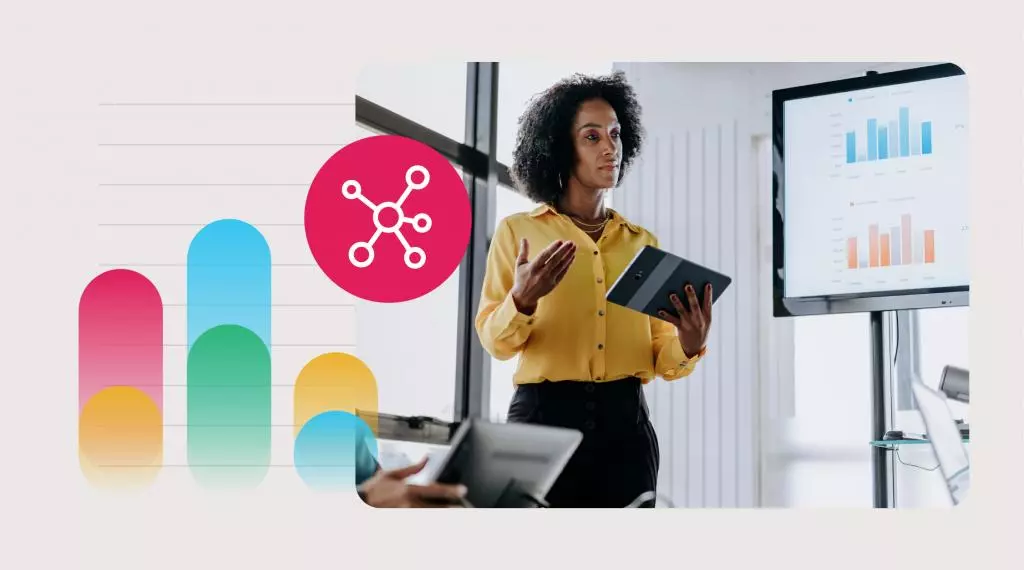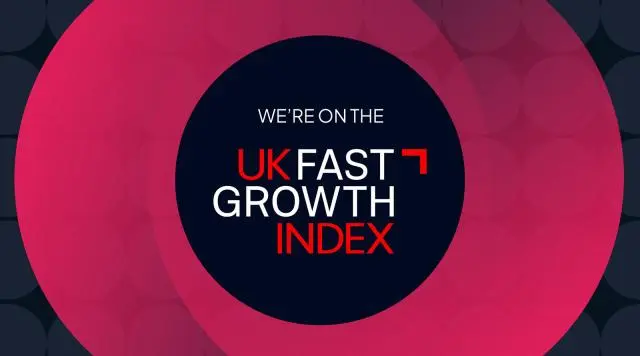Forget Applications. Why Your Business Should Be Data-Centric Instead.
Sun, August 18, 2024- by Paul Saxton
- 4 minute read

CIOs have a data problem. As they become responsible for their organization’s data assets, many are realising that data is poor quality, inconsistent and siloed. It’s locked away in separate applications, which weakens decision-making and inhibits AI adoption.
Improving data quality is hard when you have an application-centric mindset that focuses on the applications themselves rather than the bigger picture.
The solution is to adopt a data-centric mindset. One that stops you from managing each application in isolation and starts putting data at the heart of your strategy.
Application-centric mindsets are a relic of the past
It’s not surprising most businesses become application-centric. Software has transformed industries to such an extent that businesses are forced to rapidly adopt new solutions without considering the extent to which applications need to contribute to an overarching strategy.
But while an application-centric mindset produces results in the short term, it weakens your company’s ability to use data in the future. Because when everything is driven by the application, data is a byproduct—and a poor one because of it.
Data silos become a particular problem, and one suffered by 82% of companies. When businesses put applications first, they generate massive amounts of data, but they can’t do anything with it. Data is locked away in applications that don’t speak to each other or even store data in the same format.
At 5Y, we believe data is the key to better business outcomes, not your applications. It’s why we encourage organisations to cultivate and support the pivotal role data plays in their organisation.
It’s why we encourage them to become data-centric.
What is data-centricity?
Data-centricity is the practice of positioning data at the centre of your business. When you become data-centric you treat data as a valuable asset that remains unchanged regardless of the applications you use.
Being data-driven is not the same as being data-centric. Being data-driven means making data part of your decision-making process. But it doesn’t necessarily mean you treat data has its own assets. It could still be locked away in different applications.
The good news is that every data-centric organisation started life as a data-driven company.
To become data-centric is part mindset and part architecture. You must recognise data’s vital role in your organisation’s success while also building an underlying technical infrastructure that frees you from data silos—5Y helps with both.
Eventually, applications will become irrelevant. Rather than managing an application in isolation and trying to make it meet your requirements, you can use the best application, irrespective of your existing infrastructure. Applications become tools that can be upgraded, replaced or retired. Data becomes the constant.
Data-centricity means better data quality
When organisations become data-centric, they naturally find ways to improve data collection, management and analysis.
Data becomes democratised and consistent across the organisation. Everyone has access to it because there aren’t any silos. It becomes a shared asset, in a common language that everyone can use to improve reporting or accelerate transformation efforts.
Better-quality data puts your business in a better position to leverage AI and machine learning, too. As we’ve discussed before, data quality is the foundation of AI initiatives. But it’s also one of the hardest and most consuming things to solve.
Becoming data-centric means you’ll already have processes and platforms in place to consolidate and cleanse data. So, when you do launch an AI model or buy an off-the-shelf tool, your data is in excellent condition to quickly drive meaningful results.
If that wasn’t enough, it also helps you meet growing data privacy and governance requirements. Mastering and consolidating data makes it easier to track what you’re storing, where you’re storing it and who you’re storing it about.
What does data-centricity look like in practice?
Our data-centric approach manifests itself in several ways:
The 5Y Unified Data Platform
The first is through our Unified Data Platform, a data-vaulted powered and Microsoft Layers-aligned solution that consolidates hundreds of diverse data sources into a single, audible version of truth.
After consolidating data in a single location we can apply a range of pre-built frameworks that generate actionable BI reports and accelerate your outcomes. You can also use the data to achieve a variety of business goals, including:
. Data analytics
. Application integration
. ESG reporting
. Data archiving
Data-managed services
The second way we apply our data-centric approach is through our unique managed services offering. We believe managed services should do more than keep your business operational, they should improve the way your business collects and leverages data.
So, rather than managing a single application, we look after your entire ecosystem. You still get front-line support and incident management, but we also ingest your data into our Unified Data Platform so we can visualize your entire data landscape and make improvements regardless of the specific applications you use.
Start your journey to data-centricity
5Y can help you become a more data-centric organisation today. Use our Unified Data Platform to centralise hundreds of different data sources into a single version of truth to drive business insights, fuel digital transformation projects and improve reporting. Or take advantage of our data-centric managed services and enjoy a more proactive service at a lower cost.
Speak to an expert or request a demo today to find out more.

 Saudi Arabia
Saudi Arabia




